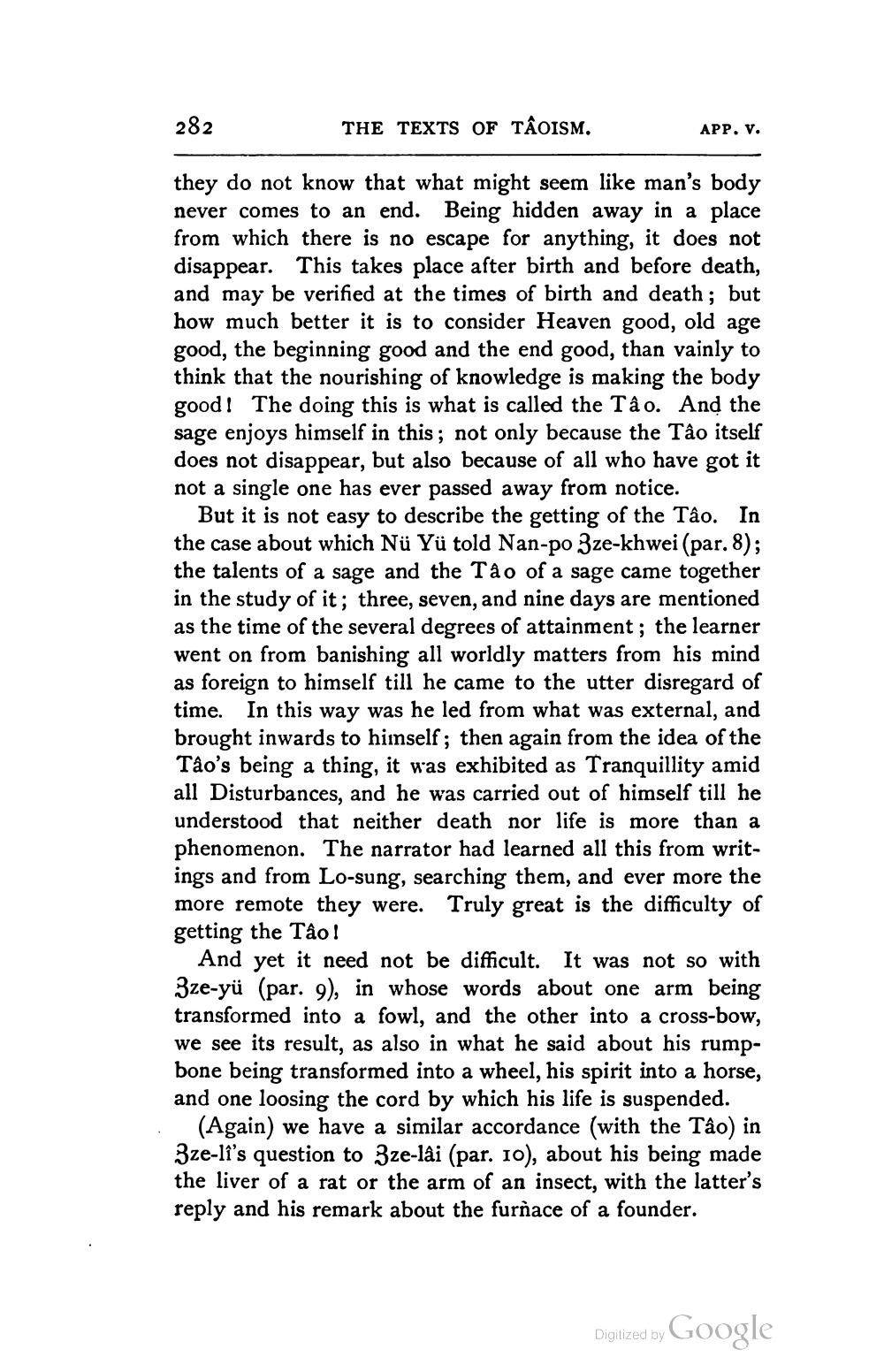________________
282
THE TEXTS OF TÂOISM.
APP. v.
they do not know that what might seem like man's body never comes to an end. Being hidden away in a place from which there is no escape for anything, it does not disappear. This takes place after birth and before death, and may be verified at the times of birth and death; but how much better it is to consider Heaven good, old age good, the beginning good and the end good, than vainly to think that the nourishing of knowledge is making the body good! The doing this is what is called the Tâo. And the sage enjoys himself in this; not only because the Tâo itself does not disappear, but also because of all who have got it not a single one has ever passed away from notice.
But it is not easy to describe the getting of the Tâo. In the case about which Nü Yü told Nan-po Zze-khwei (par. 8); the talents of a sage and the Tao of a sage came together in the study of it; three, seven, and nine days are mentioned as the time of the several degrees of attainment; the learner went on from banishing all worldly matters from his mind as foreign to himself till he came to the utter disregard of time. In this way was he led from what was external, and brought inwards to himself; then again from the idea of the Tâo's being a thing, it was exhibited as Tranquillity amid all Disturbances, and he was carried out of himself till he understood that neither death nor life is more than a phenomenon. The narrator had learned all this from writings and from Lo-sung, searching them, and ever more the more remote they were. Truly great is the difficulty of getting the Tao!
And yet it need not be difficult. It was not so with Zze-yü (par. 9), in whose words about one arm being transformed into a fowl, and the other into a cross-bow, we see its result, as also in what he said about his rumpbone being transformed into a wheel, his spirit into a horse, and one loosing the cord by which his life is suspended.
(Again) we have a similar accordance (with the Tâo) in Zze-li's question to Zze-lâi (par. 10), about his being made the liver of a rat or the arm of an insect, with the latter's reply and his remark about the furnace of a founder.
Digitized by Google




